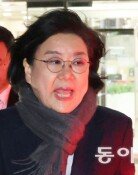College Credit for High School Students
College Credit for High School Students
Posted June. 24, 2005 05:54,
An advanced placement program (AP) giving high school students the opportunity to take college courses and earn college credits is expected to be introduced on a trial basis beginning this summer vacation. With the program, students will potentially be able to graduate from universities one semester earlier if they take the courses for three years in high school.
The Ministry of Education and Human Resources Development announced on June 23 that 10 universities will participate in the AP program, setting up around 50 courses with an enrollment of about 1,000 students in collaboration with eight city and local offices of education.
The AP program is designed to provide talented students with education options meeting their needs. The universities participating in the program include Seoul National University, Korea University, Pusan National University, and the Korea Advanced Institute of Science and Technology.
Operation Plan-
The Ministry will amend the Higher Education Act so that students can earn credits for AP courses they take, while expanding the program to 16 cities and provinces beginning in 2006. AP courses taken this year will be recorded as extracurricular activities in the transcripts of school records.
Each course is the equivalent of three units. If one takes two AP courses each semester, one can earn a maximum of 18 credits in three years.
In the U.S, the College Board has run the AP program since 1955, granting credits based on national test results. Some universities give students admission or extra points based on how many AP courses an applicant has taken in high school.
In Korea, 321 students from eight high schools, including Korean Minjok Leadership Academy and Daewon Foreign Language High School, took the American AP test and 309 students earned credits.
The ministry plans to create an organization tentatively named the Korea Institute of University Education Evaluation to take charge of AP evaluation tests in 2007. Starting in 2008, it will create an AP curriculum and materials in each subject area so that high schools can offer courses.
The Program-
This year and next year, 30-45 hour courses will be offered at either high schools or universities. The courses will be run jointly by a city or local office of education and a university. Some of these partnerships include Seoul Korea University, Gyeonggi-Seoul National University, Busan - Pusan National University, Daejeon - KAIST, Chungbuk-Chungbuk National University, Gangwon-Kangwon National University, Yonsei University, Kangnung National University and Jeju-Cheju National University.
The Seoul Metropolitan Office of Education sent high schools official documents to offer six AP courses, including Korean, Mathematics, Physics, Chemistry, Biology and English at Korea University for around 140 students for the period between July 25 and August 12.
To apply for the courses, students of special high schools need a recommendation letter written by a school principal. Students of ordinary high schools should be among top five percent in each subject and pass the test. A total of 30 percent of enrollment will be allocated to students of ordinary schools.
Will it Work?-
Some raise questions about the effectiveness of the AP program on the grounds that the Ministry will not link the AP program with university admissions for the fear of fueling private education.
Seoul National University, which has introduced the AP program for students of special high schools, noted, Many students took the courses in the belief that it would help their college admission, adding, The program should not be associated with college admissions.
A source from the Gangwon-do office of education said, The college-level courses are too difficult for the first graders of ordinary high schools. The courses are appropriate for second- or third-year students, adding, Considering this, it is highly doubtful how many of them will attend the courses which will in no way help them with college admissions when they are busy with preparation for college admission tests.
But the assistant principal of Chungbuk Science High School said, All first graders, 46 in total, signed up for one course, and more than half signed up for two courses. And more than 90 percent of second-year students wanted to sign up for one course.
Na-Yeon Lee larosa@donga.com




![“한동훈, 정치생명 걸고 무소속 출마해 평가받는 것 고려할만”[정치를 부탁해]](https://dimg.donga.com/c/138/175/90/1/wps/NEWS/IMAGE/2026/01/19/133186982.1.jpg)


